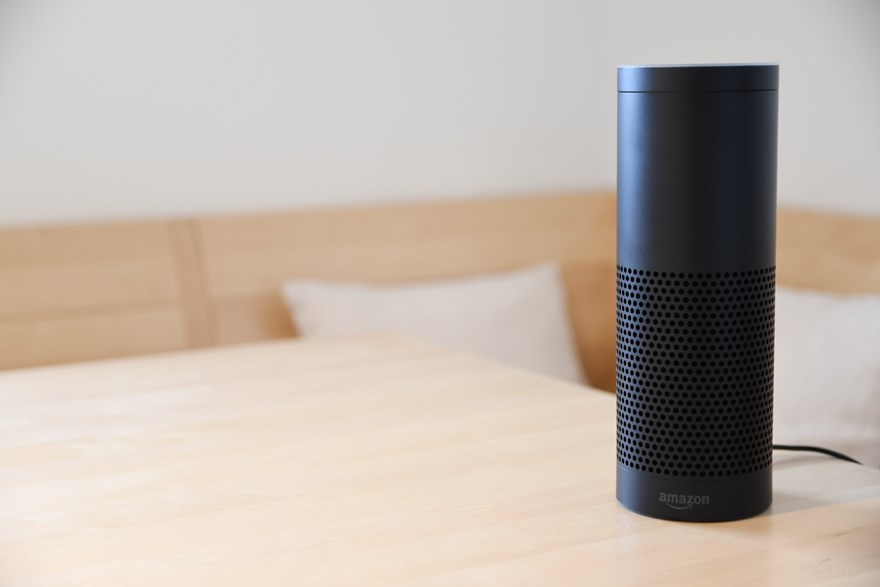Why Voice-Activated Search is Both a Massive Threat and Huge Opportunity for Wine
– By Richard Siddle
One of the funniest viral videos doing the rounds on social media recently is a clip of increasingly frustrated Amazon Alexa users shouting instructions at the voice search assistant only to be repeatedly given the wrong information back. It seems the angrier a particular retired Scotsman becomes trying to get Alexa to play one of his favorite traditional Scottish folk songs, the less Alexa can understand him—offering him suggestions of John Denver instead.
But it would be foolish to dismiss voice search and new devices such as Amazon Alexa, Amazon Echo, Apple’s Siri, and Google Home as being destined to join the likes of Wii video games in the digital dustbin. In fact, voice search is already making up a significant proportion of how people are using online search to find out the information they need.
The pace of change is astonishing. Voice search, for example, went from practically zero at the beginning of 2015 to up 10 percent of all searches globally by the end of it, resulting in 50 billion searches in December 2015.
Now it is estimated that 40 percent of adults use voice search at least once a day and it is predicted that in 2018, 30 percent of all search will be done by voice (Gartner), increasing to 50 percent of all searches by 2020 (ComScore).
Driven by the widespread use of household products like Alexa or Google Home, technology experts like Gartner are predicting 75 percent of U.S. households will have a voice device by 2020, up from seven percent now.
Voice search is also not just confined to dedicated speaker devices or your smart phone, 25 percent of searches on a Windows 10 taskbar, for example, are now done by voice (Microsoft).
The applications of voice search are still very much in their infancy. Currently capable of carrying out tasks such as finding an address on Google Maps, or picking out a song (preferably a non-traditional Scottish one) from your iTunes collection.
ULTIMATE IN PERSONALIZED SEARCH
But the real magic of the new voice search applications is that they are designed to get smarter, more intelligent, accurate and relevant to our individual needs. They all have machine learning technology built into them that allows them to adapt and learn.
This comes at a time when we are all, knowingly or not, looking for more personalized and individual services and products that are relevant to our wants and needs.
Ask any major restaurant, retailer, hotel, bar, cinema, or service provider, and they all are taking steps to tailor what they offer to the individual needs of their targeted community of consumers.
Fundamentally, voice search does not give you an infinite number of choices that a Google search would. It gives you one. Which is where businesses and brands are really scratching their heads: What happens to me if my brand or business does not come back in that reply?

THREAT TO BRAND POWER
Voice search has the potential to turn the world of brand advertising and brand power on its head, where it will become increasingly difficult to build brand loyalty.
New research shows that smart speakers, for example, will suggest a different brand than the one a user is currently using in nearly one in five searches when ordering a product via voice. In the majority of cases, 61 percent of speakers won’t ask if you want to order the product you had before, or, in 62 percent of searches, ask if you were looking for a specific brand (ComScore).
This clearly has major ramifications for brands. Particularly in a sector as a fickle as wine, where there is not the brand power of the big fast-moving consumer goods (FMCG) categories, and so much of it is purchased on impulse and/or by name recognition once the consumer sees the label in-person. How easy will it be to voice check that wine next time you want to order another one?
It also opens the door for private label and retailer-owned brands to become even more important and powerful. If you are buying your groceries via a certain store, then why not just ask for their top Prosecco or Pinot Grigio rather than worry about which brand you like?
And then there is Amazon, which is not only acting as the search engine and the voice assistant with its Alexa and Echo machines, but also as the end retailer, too. In the U.S., for example, 15 percent of Alexa owners already use them to buy products direct from Amazon.
Not surprisingly, the big FMCG and advertising industries are already in talks with the search companies to see where their futures lie. Don’t be surprised if we see agreements put in place that allow brands to pay to influence the algorithms in these voice assistant machines to ensure their products and services are being promoted first.
It’s also a concern for wine companies, be it producers, suppliers, or retailers, that have spent the last few years working tirelessly building up their own communities of loyal and interested customers through social media and direct marketing—communities that self-learning machines can potentially take away from them with their voice recommendations.
LOCAL IS BEST
There is, though, some better news for those operating in the on- and off-premise sectors. Much of this new technology will also include increasingly sophisticated location data applications.
This is seen as the real game-changer for voice search as it will mean the responses will become more relevant as they pick out the nearest businesses, services, and products to where the user is using. So potentially, you can just jump in your car and ask its voice search system to bring up the nearest wine shop selling a particular type of wine on the satellite navigator. Wait another 20 to 30 years and it will be able to drive you there itself.
Already 82 percent of people use a search engine on their smartphone to find a local business and the number of people using a “near me” command has doubled in the last year.
It might sound a bit too much like “Big Brother,” but if these devices help you get to where you need to get to—be it physically, or emotionally—then expect them to become a bigger part of both your personal and working lives.
Whether voice search assistants will ever be able to help an angry Scotsman with the thickest, most impenetrable Glaswegian accents remains to be seen. But I wouldn’t bet against it.
